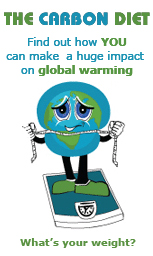Ask Ronit
 I Like Your Ponytail, A Story About Commitment
I Like Your Ponytail, A Story About Commitment
“I like your ponytail.” I said in a playful manner. “Ponytail?” he repeated in a thick French accent. There and then began the most extraordinary odyssey of my life.…
Avoid 90% of the Pesticides in Food, by Avoiding 12 Foods
Why should you care about pesticides in your food?For starters there may be as many as twenty pesticides on a single piece of fruit you eat.…
Dear Mrs. Black,It was January 1967 when this 11 year-old, frightened, little Israeli girl walked into your classroom for the first time. I had only arrived in the country two weeks before.…
With sex all around us, oozing out of our televisions, theaters, magazines, fashion, on the streets, one would think we are the most sexually informed, open and comfortable nation on the planet.”…
I’m sure by now you all have noticed the ongoing meltdown in the mortgage industry. The cause of this whole mess is a little bit complicated, rooted in both the structure of the mortgage industry, and human nature. I’ll try to explain both factors here in layman’s terms.…
Breaking old habits; Creating new Ones
We are mostly habitual beings. Webster defines habit as an acquired mode of behavior that has become nearly or completely involuntary.…
Navigation
Inquiry
Fuel Without the Fossil
By NY Times
For years, scientists have known that the building blocks in
plant matter, like corn kernels, stalks, straw and wood chips, contain an immense potential resource that could, in theory, help fill the gasoline tanks in America's cars and trucks. Most have focused on biology as a way to do it. But now, a new group of entrepreneurs, including Mr. Mandich, favor chemistry. They believe that techniques borrowed from oil refining and other chemical industries will allow them to crack open big biological molecules, transforming them into ethanol or even diesel and gasoline. read more »
Corn Plastic to the Rescue
Corn based biodegradable plastic offer hope for a cleaner future. The resin, known as polylactic acid (PLA), is formed into containers and packaging for food and consumer goods. While it may seem better than the conventional petroleum based packaging, there are some serious questions as to whether it is in the long term. read more »
Seagoing Climate Experiment Begins
By NY Times
A novel and contentious effort aims to commercialize the removal of heat trapping carbon dioxide from atmosphere using blooms of plankton. The Weatherbird II, a 115-foot private research vessel, entered international waters on Sunday to fertilize seas by adding iron. Some scientists believe that hundreds of millions of tons of carbon dioxide might be absorbed by fertilized seas. A lack of iron in some ocean waters prevents plankton from blooming. But some environmental groups oppose such efforts. read more »
Four out of five acknowledge need to sacrifice
By BBC News
The majority of people recently polled by the BBC stated that they believed sacrifices would be necessary to combat climate change.
The recent poll involved over 22,000 participants from Australia, Brazil, Canada, Chile, China, Egypt, France, Germany, Great Britain, India, Indonesia, Italy, Kenya, Mexico, Nigeria, the Philippines, Russia, South Korea, Spain, Turkey, and the United States.
The US and China, the two largest producers of carbon emissions also showed a recognition of the necessity for steps to be taken. read more »
Can you ID a person's racial/ethnic background?
I scored horribly on this test. I'd love to hear how you perform.
This quiz is a series of photos where you are asked to determine the persons race or ethnicity. As the author puts it:
Usually, mislabeling amounts to nothing more than an awkward experience for one or both individuals involved. But in some contexts, such as in the medical field - where exam results, dignoses, and treatment plans may depend on racial categories - the results of mislabeling can be much more signficant such as missed diagnoses, incorrect diagnoses and/or inappropriate treatment protocols.
read more »

 My Hero
My Hero We Are Sexual Beings
We Are Sexual Beings The Banking Implosion
The Banking Implosion









